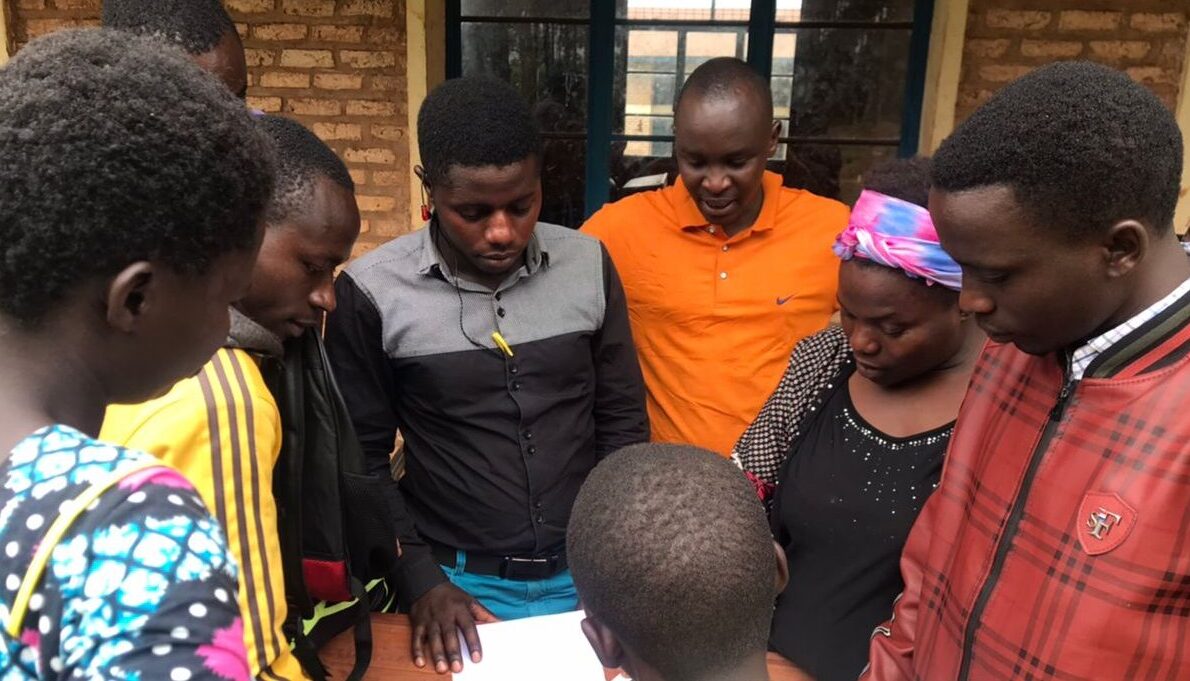Mehreen Farooq, Director – Program Quality and Learning
Afflicted by nearly two decades of civil war, Burundi, one of the countries with the youngest populations in the world, continues to face challenges in establishing long-term peace and stability within its borders.
In recent months, the security situation has deteriorated, with militants conducting violent ambushes in central Burundi and in the capital city of Bujumbura. A lack of economic opportunities for youth and unequal distribution of resources and wealth are among key drivers of instability. In addition, ethnic divisions between the formerly dominant Tutsi minority and the Hutu majority continue to sow social discord, with young people increasingly at risk of engaging in violence to resolve socio-economic grievances.
To address these challenges, Counterpart International is implementing Turi Kumwe (“We Are Together”) a USAID-funded peer-to-peer peacebuilding activity (2020-2023) through positive youth development (PYD).
In partnership with local organization, Jumelage Jeunesse pour le Bien etre des enfants et des jeunes, we utilize Village Savings and Loan Associations (VSLAs), a popular mechanism for individuals, particularly those who do not have access to formal financial services, to save and invest their income into personal or communal activities. To date, 35 VSLAs have been formed with over 1,050 participants in six locations throughout the country.
In addition to learning about income generating activities and savings, our VSLAs are designed to foster social cohesion. Our conflict-sensitive facilitators intentionally include youth from diverse backgrounds so that engagement in the association can foster trust and mutual understanding between different ethnic communities.
Applying our Missing Voice Analysis – Counterpart’s newest political economy analysis tool – we identified historically marginalized populations to include such as persons living with a disability, youth with albinism, Twa (an indigenous Pygmie ethnic group), single mothers, and internally displaced peoples and returnees.
VSLA participants also gain peacebuilding skills such as conflict analysis and management. Through dialogue, participants discover shared values, transform biases, and begin to appreciate differences between different identity groups. Over time, the goal is for participants to foster constructive complex identities as a means to reduce ‘us-versus-them’ perceptions that fuel communal violence.
Within a few short weeks of implementation, the VSLAs are already having substantial impact on strengthening key PYD domains and giving youth new direction.
“I am unemployed. Before, I would simply wait for my husband to give me some money. With the trainings, I understood I can do something even with a small amount of money. One day, my husband gave me 1,000 BIF (0.51 USD) and instead of buying beer, I bought avocadoes and resold them for profit on another day when no market takes place, so prices are higher. I did that a few times, then again with sweet potatoes. In one month, my capital increased to 17,000 BIF (8.67 USD). This small activity will help me to find the weekly savings I need for the VSLAs. Then I can take a loan from the VSLA and grow my business even further.”
Speciose Nizigama, 28 year-old unemployed youth from Kiremba
To ensure that diverse participants – including members of historically marginalized communities – have meaningful engagement in the VSLAs, our approach includes building the capacity of participants prior to key activities. This includes building their confidence and advocacy skills to meet their community’s needs.
Our training includes public speaking training and hands-on exercises. Over the course of the training, facilitators noted significant improvement in many participants’ ability to speak clearly and coherently in these exercises compared to the start of the session.
For some youth participants, particularly those affected by trauma, tackling self-doubt was one of the greatest challenges. Unaddressed, it can lead to withdrawing from society, and losing confidence in their own self-worth and personal ambitions. Our facilitators worked with youth to set personal goals and provided guidance on how to boost their self-esteem.
“After my mother died, my father and mother-in-law started to persecute me. It led me to having bad behaviors and I got pregnant. After I gave birth, my family chased me away and my life became a nightmare. I had no hope and often had suicidal thoughts. When I heard about the Turi Kumwe project, I did not hesitate to register, thinking it was my opportunity to change my life. I was happy to be selected and this training opened my eyes. I understood that my biggest enemy is my own fear. I will now start participating in community meetings and activities and seek advice from those who were successful in their business and life. I am starting to think about my own life project.”
Aline Nizigama, 23 year old single mother from Kiremba
Counterpart looks forward to building on these experiences to further strengthen youth competencies so that they can channel their energies into positive actions.





